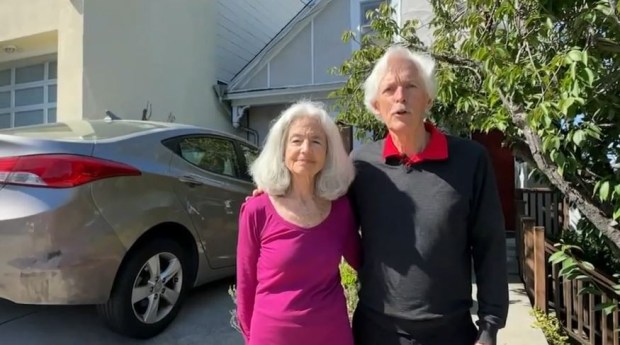A couple in San Francisco, California, successfully overturned a $1,500 fine for parking on their own driveway, triggering changes in local parking regulations. Judy and Ed Craine had parked in the same spot outside their home for over 36 years without any issues, until an anonymous complaint in June 2022 led to the unexpected fine.
The Craine’s ordeal began when they received an email from the city’s planning department, stating that their use of the driveway violated city code. The code specifies that vehicles must be parked outside homes only if a garage or cover is present, a rule aimed at preventing front yards from becoming parking lots. The couple was informed that failure to comply would result in an additional $250 daily fine.
In contrast, their neighbors, who also received complaints, were exempt from penalties because they had garages. This discrepancy led to questions about the fairness of the regulations. Judy Craine expressed her disbelief, stating, “I thought this was a mistake,” while her husband Ed added, “To all of a sudden be told you can’t use something that we could use for years, it’s startling – inexplicable.”
The couple rallied support from a global audience, many of whom were outraged by the situation. After a lengthy battle, evidence emerged that the driveway had been used for parking since the 1950s, prompting the city to reconsider its stance.
Regulatory Changes on the Horizon
Following the Craines’ victory, San Francisco Mayor Daniel Lurie announced plans to reform the outdated parking regulations. Elizabeth Watty, the city’s Director of Current Planning, acknowledged the embarrassment surrounding the incident and emphasized the necessity for modernization. “The directive was – how can we do better? How can we create some improvements around common-sense governance?” she remarked.
The city is taking steps to amend the planning code, allowing homeowners to park in their driveways without the threat of violation under the existing regulations. Nevertheless, some restrictions will remain, including a limit of two vehicles parked in a driveway. Violating this rule could result in a fine of $1,725.
The Craine case exemplifies the impact of community engagement and the importance of clearly defined regulations. Their story not only highlights the challenges faced by homeowners but also underscores the need for local governments to adapt to the changing needs of residents. As San Francisco moves forward with these changes, the Craines’ experience may serve as a catalyst for similar reforms in other cities.


































































